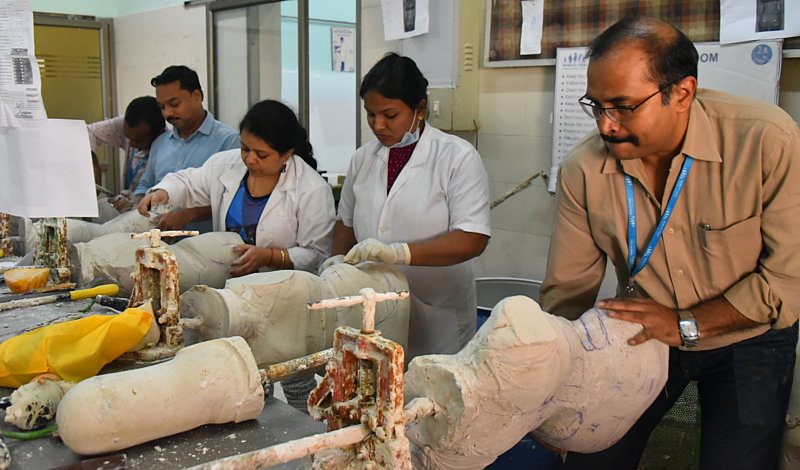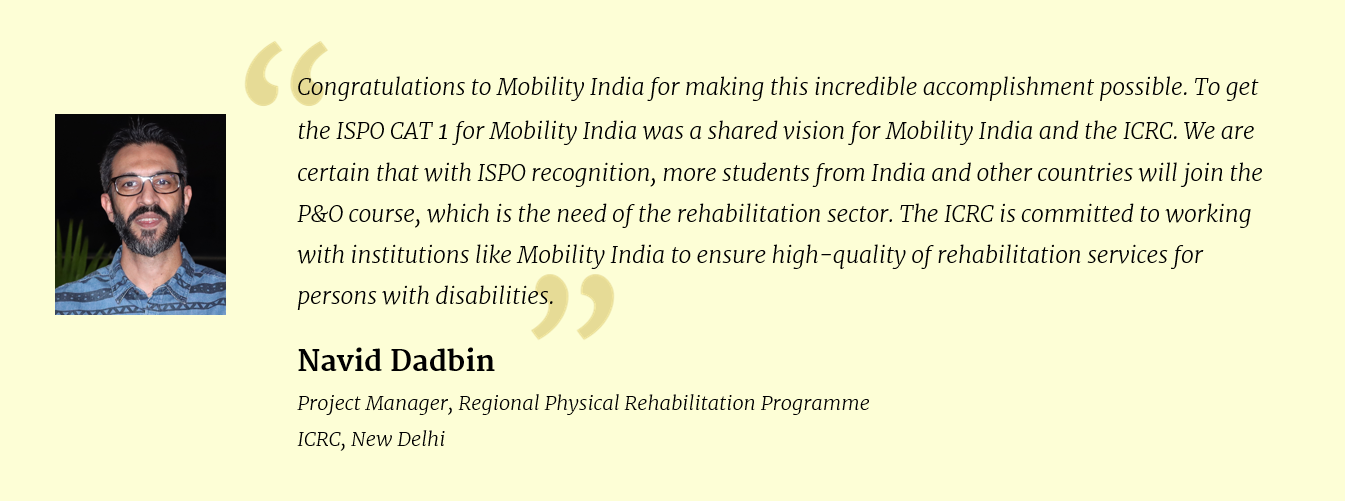The New Year brought good news not just for the ICRC Regional Delegation and Mobility India but also for the entire physical rehabilitation ecosystem in India and the region. Mobility India (MI), an esteemed partner of the regional delegation of the International Committee of the Red Cross (ICRC), received accreditation for three years from the International Society for Prosthetics and Orthotics (ISPO) for their Bachelor in Prosthetics & Orthotics (BPO) program, affiliated to Rajiv Gandhi University of Health Sciences (RGUHS), Karnataka, and recognized by the Rehabilitation Council of India (RCI), New Delhi.
With this, MI has become the first institution in India and the SAARC region, and the seventh among Asian countries, to receive this prestigious authorization. Established in Bengaluru in 1994, MI offers multidisciplinary courses to develop rehabilitation professionals in India and developing countries and train them to adequately assist persons with physical disabilities.
“It is a huge honour for me to receive the ISPO certification for the BPO program that I completed recently. This international certification gives me further confidence that I have undergone quality education in Prosthetics and Orthotics at MI, and I have the essential competencies to deal with individuals who need my service. This will also help me in my career development prospect,” said Obaid Ur Rahman from Afghanistan, a former student.
Founded in Denmark in 1970, ISPO helps promote appropriate and equitable rehabilitation worldwide. It continues to provide prosthetic and orthotic care to improve the quality of life for people with reduced mobility.
The regional delegation of the ICRC has been supporting Mobility India since 2014. The long-standing association has included material and component support for students’ practice, assistance to purchase equipment for MI’s training units, capacity-building of rehabilitation professionals, providing wheelchairs and other necessary equipment.
Globally, an estimated 2.4 billion people live with a health condition that could benefit from recuperation. Since 1979, the ICRC has supported the physical rehabilitation sector. The objective has been to strengthen local physical rehabilitation services by making them more accessible, improving their quality and ensuring they continue over the long term.
The ICRC also assists in capacity-building to help sustain quality services and ensure that students, doctors, and nurses receive the training required to adapt to the latest orthopaedic techniques. The goal is to assist people’s physical needs, assure each person can get the right help and regain their mobility, allowing for greater autonomy and independence while simultaneously contributing to the larger goal of an inclusive world.



